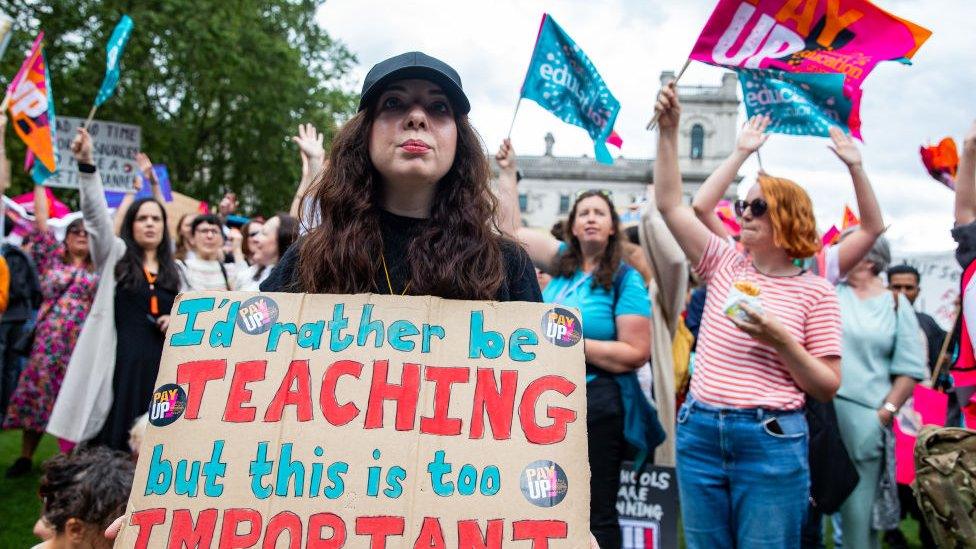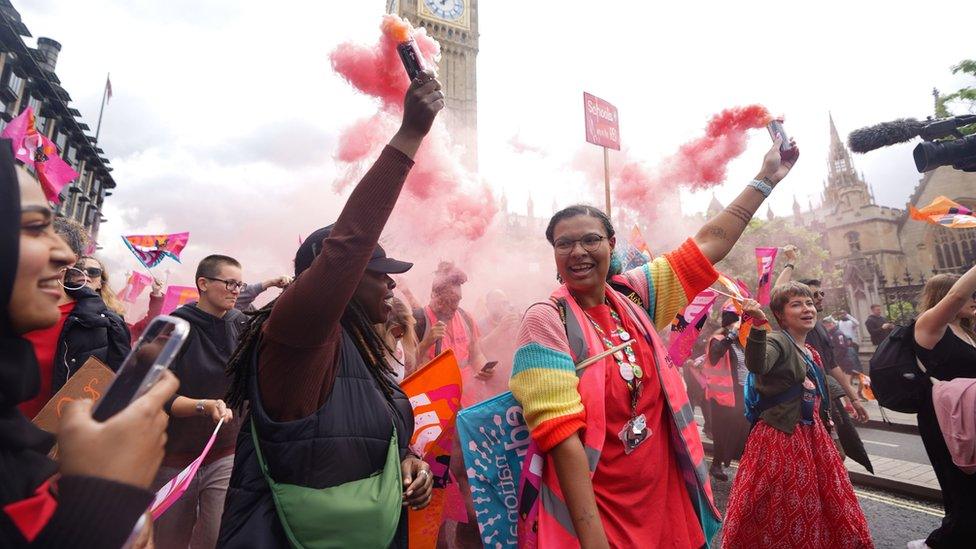Minimum staff levels demanded in school strikes
- Published

The Department for Education says it will ensure education can continue through strike action
Schools and colleges in England will be asked to make sure a minimum number of staff are working on any future strike dates, the government has announced.
Education Secretary Gillian Keegan will discuss the issue with unions, who have called it "undemocratic".
It will be on a voluntary basis at first but, in the future, Ms Keegan said the government could use powers introduced earlier this year.
Unions have said it is an attack on teachers' right to strike.
Ms Keegan is referring to the Strikes (Minimum Service Levels) Act, which applies to a wide range of workers.
The government said the law would ensure workers maintain the ability to strike while giving the public access to the essential services they need.
The Department for Education says the agreement will protect children, young people and parents to ensure education can continue during any future strike action.
Daniel Kebede, general secretary of the National Education Union (NEU), said the union strongly opposes the introduction of minimum service levels, adding that the government "has no democratic mandate to implement such an attack on our democratic freedoms".
Geoff Barton, general secretary of the Association of School and College Leaders (ASCL), said with major staff shortages and the number of school buildings affected by reinforced autoclaved aerated concrete (Raac), the government should be supporting the profession.
"By attempting to remove the right to strike instead of engaging with the profession and seeking to address their concerns, the secretary of state demonstrates that her priorities are in completely the wrong place," he said.
The National Association of Head Teachers union said it was an "overtly hostile act from the government and an attack on the basic democratic freedoms of school leaders and teachers".

NEU members rallied in London during strike action last month
He said: "At a time when the government should be building bridges with the profession, the timing of this couldn't be worse."
Earlier this year, members of the NEU in England were on strike in a dispute with the government over pay.
During previous strike action, headteachers had plans in place to support GCSE and A-level students, and unions said head teachers would make sure those pupils were in class for exam preparations.
The teaching unions involved accepted an offer in July but NASUWT members are currently taking action short of a strike at schools in England.
Ms Keegan said: "Last year's school strikes were some of the most disruptive on record for children, and their parents. We cannot afford a repeat of that disruption - particularly as schools and teachers continue to work so hard to help children recover from the pandemic.
"I am asking the teaching unions to engage with us and agree to put children and young people's education first - and above and beyond any dispute," she added.
Under the new law, which will apply to England, Scotland and Wales, the government would set minimum service levels after a consultation.
Employers will then be able to issue a "work notice" to unions, setting out who is required to work during a strike.
Earlier this month, a consultation was launched on minimum service levels in universities.
Related topics
- Published15 April
